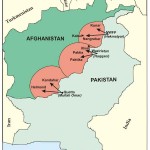Waheed’s appointment of Dr Mohamed Jameel Ahmed as the Minister for Home Affairs and Col (retd) Mohammed Nazim as the Defence Minister should be a matter of concern to India. Dr. Jameel is the Vice-President of the Dhivehi Quamee Party (DQP). A direct descendant of Sultan Giyasuddin, he was born in Fuvamulah, in southern Maldives. He studied in Pakistan, Malaysia and the UK. He obtained a PhD in Criminal Law from the School of Oriental and African Studies (SOAS) – University of London on a merit scholarship awarded by the Commonwealth.
Dr Jameel previously served as the Minister of Justice under former President Maumoon Abdul Gayoom, and briefly as the Minister of Civil Aviation and Communication under Nasheed from November 12, 2008, to May 30, 2009. He was previously known as a progressive Muslim. In July 2007, he defied radical Islamists and nominated three women judges, the first time the Maldives had admitted women to the judiciary. He resigned as the Minister of Justice the same year after accusing Gayoom of failing to take action against rising Islamic militancy and blocking political reforms.
“¦what we are seeing in the Maldives is the beginning of an under-the-surface confrontation between progressive Islamists and radical, pro-Taliban Islamists behind the façade of the presidency of progressive Waheed.
Since he parted company with Nasheed, he has been holding and expressing views which would bring comfort to the radical Islamists. His authorship was suspected behind a pamphlet which accused Nasheed of having entered into a conspiracy with the Jews and the Christians in order to contaminate the Maldivian Islamic society. He has been a critic of the preference allegedly given by Nasheed to the Indian private sector for the execution of development projects in the Maldives, particularly one for the modernisation of Male’s international airport.
Waheed was asked about it during one of his interactions with the media after taking over. His reply was evasive. He said his approach to the US $ 400 million investment project for the modernisation of the airport by the Indian infrastructure company GMR would not be political, but economic . He added: “Our objective will be to resolve concerns of the public regarding the company.”
This was implicit support for Jameel’s past allegations that Nasheed’s attitude to the Indian project was influenced not by considerations of economic benefit, but by pro-India political considerations.
The Maldives thus faces two evils””the beginnings of a radical Islam and a politicised Army.
One has the impression that while the US does not want to question the legitimacy of Waheed as the President, it has concerns over his appointment of Jameel as the Home Minister. While interacting with the media at Male on February 11, Robert Blake, US Assistant Secretary of State, reportedly expressed concern over the “anti-semetic commentary” and strongly condemned it. He also praised Nasheed’s Government “for working to improve [the country’s] relationship with Israel and show themselves as a modern and progressive government.”
Another controversial induction into the new Cabinet by Waheed has been that of Col. (retd) Mohammed Nazim, who was removed from the MNDF by Nasheed in May last because of his alleged insubordination. Since his removal, he has allegedly been trying to create disaffection in the MNDF and the Police against Nasheed. Many accounts on the events that preceded the exit of Nasheed agree that Nazim played an active role in instigating a group of about 70 MNDF personnel not to act against the revolting police officers as demanded by Nasheed.
Whether one calls it an indirect coup or not to force a democratically elected President to leave office, it is clear that a group of MNDF officers played a dubious political role in assisting the anti-Nasheed opposition at a critical moment. The Maldives thus faces two evils—the beginnings of a radical Islam and a politicised Army. Are we seeing a process similar to the politicisation of the Pakistan Army in the 1950s and the Bangladesh Army in the 1970s? That should be a question of concern to India.
“It is therefore tragic that the Maldives is all set to follow in Pakistans footsteps, without even having experienced two election cycles.
Writing in the “Minivan News”, a pro-Nasheed daily, on February 12, Yameen Rashid, a local commentator, said:
“Other countries in the region, such as Pakistan, have experimented with letting the armed forces dictate the rulers of the country. And in the bargain, Pakistan has become a failed democracy mired in chaos and conflict.
“It is therefore tragic that the Maldives is all set to follow in Pakistan’s footsteps, without even having experienced two election cycles.
“Could future political parties in the Maldives come to power simply by winning influence in the police and armed forces? Will the demands of a few hundred uniformed personnel strip 300,000 people of their democratic verdict?
“If the currently installed government is granted legitimacy, what would stop the country’s defense forces from pointing a gun at future elected governments?
“The Maldivian constitution says that the ultimate power rests with the people, and the people alone. This is the central tenet of the constitution – the one line that decides that we the people are in charge of our democracy.
“However, if this coup – this travesty – is allowed to take place unopposed, then we would have set the unwelcome precedent that a few men with guns can override the mandate of the people.”




